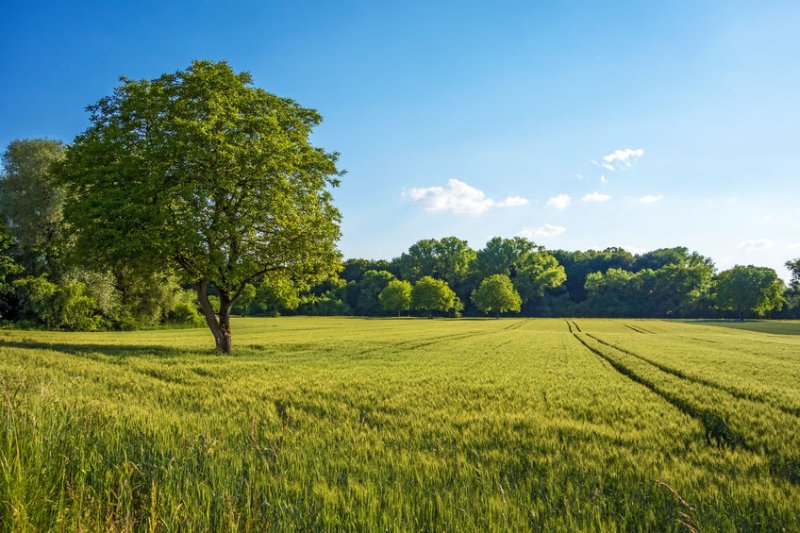
Major agroforestry trials should be established during the EU withdrawal period to improve agricultural productivity and environmental protection, according to a report.
Government support for farmers seeking to integrate trees and agriculture should also be trialled, according to the policy document “Agroforestry in England: Benefits, Barriers and Opportunities” launched today (12 June) by the Woodland Trust and Soil Association.
Agroforestry, the combination of trees and shrubs with agriculture, involves rows of trees through arable crops like wheat, dotted through pasture like parkland, or planted close together to provide cover for plants and animals.
Combining trees and farming can increase productivity, diversify farm businesses, protect soils from erosion, store carbon, increase habitat for pollinators and act as a natural flood defence.
The report, which follows on from last year’s agroforestry conference, was launched at the All Party Parliamentary Group for Agroecology, hosted by Baroness Miller and Kerry McCarthy MP.
The government has been recommended by the report to make on-farm tree planting and management central to the UK’s new environmental land management scheme, rewarding the "public goods" delivered as a result.
Defra Secretary Michael Gove announced earlier this year that farmers will receive payments for public goods once the UK leaves the EU, such as access to the countryside and planting meadows.
The government’s proposals will see money redirected from direct payments under the Common Agriculture Policy (CAP) to a new system of paying farmers “public money for public goods”.
'Break the divide'
The report goes on to recommend the government to trial new agroforestry projects that test support mechanisms, including advice and funding.
It also calls for a "new generation" of farm and forestry advisors to be trained and funded to "break the divide" between forestry and agriculture, and for trees to be placed in the upcoming Agriculture Bill to recognise their role.
Woodland Trust Chair of Trustees Baroness Barbara Young, said agroforestry has the potential to deliver on a wide range of policy objectives in England, yet barriers are preventing widespread adoption.
“Supporting agroforestry would be a win-win for productivity, environmental protection and agricultural resilience and we strongly believe the government should adopt the recommendations in our report to make agroforestry a priority for the future of farming,” she said.
Sam Packer, policy officer at the Soil Association said government must take "immediate action" on agroforestry so it can side alongside productive farming.
“Agroforestry must become a central part of new farming and land management policy, clearly defined and supported in the Agriculture Bill.”
